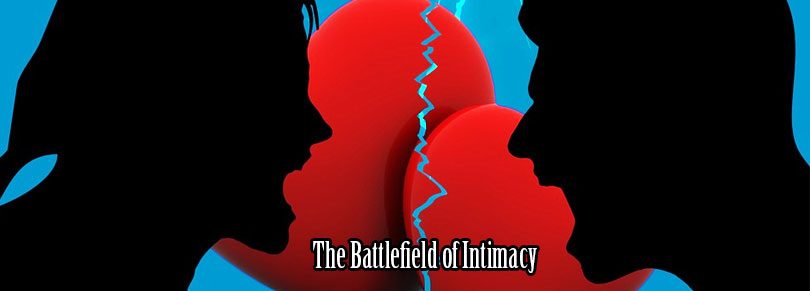Violence and abuse is bursting at its seams. Behind closed doors of homes all across our country, people are being abused, tortured and beaten. It crosses all social classes, genders, religion and age groups. The use of physical violence to attain or exercise power in a family relationship has been prevalent throughout history, but only recently has domestic violence been labeled a social problem.
It was after this that child abuse was identified as a social problem and with more reports came concerns about elder abuse and husband abuse. As a counselor, I was aware of these facts but what I certainly had not expected was to see the kind of effects that it had on so many urban, educated, independent men and women. 11.8 per cent of Kerala’s population suffers from domestic violence against a national average of 5.3 per cent, states a 2011 Comptroller and Auditor General (CAG) report, in the August 1st 2011 issue of India Today. Alcoholism, divorce and domestic violence fuel a surge in psychological illnesses in this country, claimed the magazine.
Violence against men
There is no question that domestic violence directed against women is a serious and a much bigger problem, but domestic violence against men also seems to be increasing gradually in India. On 19th September 2011, the newspaper, Pune Mirror featured a front page article about a group of men demanding a ministry for men’s welfare on the lines of those for women.
These men who landed in court after being accused of domestic violence are now acquitted of the charges and have come together to form the city’s first Men’s Rights Association (MRA). The Association advises other men fighting domestic violence charges with tips and tricks to come through unscathed.
The battle lines have been drawn and the casualties are numerous.
Vanessa and Datta have been married for two years. They would fight day and night. Each time they fought, Datta found it difficult to concentrate at work. He was unable to sleep and would spend hours tossing and turning after which he frequently found himself waking up in the middle of the night. He found it hard to get up in the morning and constantly felt angry and guilty.
It is difficult for men to share their emotional needs and men in such situations have shared with me, in counseling sessions, similar physical symptoms such as tiredness, drowsiness, sleep issues, headache, acidity, breathing difficulty, chest-pain, back-pain, lack of appetite, digestion problem, loss of hair and loss of weight. Some husbands said that they would go to great lengths to hide and suppress their emotions by avoidance, withdrawal or denial.
Others might harm their life or neglect their physical health. As I counseled these men what struck me the most was the intensity with which they acted out in conflicts and how quickly they escalated to harm themselves and their spouse.
The impact on Vanessa’s emotions were also significant. “I was not able to control my temper”, she says. “I kept yelling and calling him names I never used with my friends and relatives. There were rashes on my skin. I had a cold all the time. My immune system was really bad. I was like living dead.”
Wives naturally desire a deep connection with their husbands. When it fails, the consequence is always disastrous. One woman cut herself. Another woman poisoned her husband’s dog. One hit her husband with a cane. In the midst of one episode, one husband explained, “If she cuts herself, she’s the one who has to bear the pain. It’s not my responsibility.” His disconnection may avoid the escalation of conflict, but at the same time it intensifies the pathological patterns in their marriage. This pattern is perpetuating in many distressed marriages.
“Eventually”, says Datta, “I came to realize this would not work, and that I should just communicate directly with Vanessa.” He sat with her, explained things, asserting himself, “This is who I am. I understand that you suffered a lot. But I am also tortured. I can no longer live like this. It is not me.” They hugged each other and cried. Although Datta and Vanessa had dealt with their difficulties, their relationship remained vulnerable.
The more Vanessa would drag Datta into a deeper relationship, the more Datta withdrew from her. For weeks, they hurt each other with belts. “Nothing was really working. I was so insecure and I was skeptical of myself and our relationship.” says Vanessa. After one ‘knock- down hit’ from Datta, Vanessa packed her things and left the house.
Both husbands and wives in marriages face depression; feel low on energy and worthless; they also report that they have trouble falling asleep or staying asleep. While women reported poor health in marriage, men reported that they have few or no trustful and supportive relationships. When timely help is not sought, it results in both men and women losing self-esteem, and leads to a perpetuating cycle of violence.
At times both partners realize the impact on their life and attempt to harmonize the discord by often suppressing their own wishes. However, this solution only leads to more conflict in such an intimate relationship.
So why do otherwise seemingly normal individuals demonstrate such behavior?
William Glasser, a marital expert in the US, says that the husband adopts the most destructive external control practice in an abusive marriage. He believes he owns his wife. Specifically, men can beat, abuse, rape, or exploit their wives and get away with it because the men who lead our present society are scared they will lose power since wives are legitimately protected by the law. As Indian wives submit in marriage, they may also repress their anger.
Depression is the anger turned inward. This repressed anger suggests that, for Indian marriages, both bonding and responding to intimacy remain unfulfilled. The results of an abusive marriage can be terrible and destructive – neuroses, madness, psychosomatic disorders, delinquency, and violent crime. At the heart of it lies a severe wound that is being repressed in the person. Since the wound is critical to the person, they cling to the opportunity when they can take revenge.
Emotional Abuse
It is commonly assumed that if you’re not being physically abused by your partner, then you’re not a victim of violence. But that is not necessarily true. There is something far more insidious in relationships that many victims aren’t even aware of. Emotional abuse! It is as damaging as physical abuse, though it is often harder to recognize, and therefore confront. Emotional abuse is an attack on victims’ personality and well being and is often described as worse than physical violence. It is commonly referred to as ‘mind-games’.
It frequently amounts to the abuser assuming a tight and unhealthy control, which may cause the victim to become increasingly isolated in the community. Emotional abusers are great at self deception and projecting blame onto their partners for their abusive actions and almost always make continual declarations of ‘changing’ and ‘how much they love the partner’ to keep partners firmly in their grip.
In the face of an abusive marriage, what do Indian couples need to survive the years meaningfully?
According to Vijay Nagaswami in The Hindu (August 7, 2011), in order for the marriage formula to work, two preliminary conditions need to be fulfilled.
- The first of these is the recognition that bonding is not, as many people think, bondage. The bond of connectedness is based voluntarily on a desire to connect, and not because the partner requests it.
- The second condition is that it takes two to bond. Of course, both partners may have different ways to express their need for connectedness because of their built-in differences. However, once the process is started, they will find their way to deal with their issues, as well as to create a resilient bond that strengthens their intimacy in times of distress, and facilitates deeper understanding for personal space.
Though there is claim that couples therapy has no place in the treatment of violent marriages, Jeffrey E. Young, the director of Schema Therapy Institute, has demonstrated that therapy can help patients become aware of the childhood memories, emotions, bodily sensations, cognitions, and coping styles associated with them. Subsequently, they can begin to exert some control over their responses.
Vanessa and Datta did not talk to each other for a few weeks and after they were both in a calmer frame of mind, Vanessa called Datta. They both had had time to think and fortunately both did not give up on their marriage as yet. They decided to make concerted efforts this time and came in for intensive counseling sessions and workshops while living separately. During these sessions they were able to unearth the deeper underlying issues.
“I never realized that these were the things that Datta was traumatized about. I just always thought that all this anger he had within him was towards me”, says Vanessa. After a few months they moved back in together and though it is a tough road, they are now on the path to healing and restoration. They understood that the commitment of marriage that they made is worth saving and they must make all possible efforts to at least TRY and make it work, despite the challenges.
The consequences of violent marriages, even those where the partners love each other, may or may not be disastrous. Some couples may just hang in there, but others may feel threatened or insecure and lead parallel lives. However, if couples conceive of marriage as a solving circle in which the marriage takes precedence over what each partner wants as individuals and each other, then the couple will not try to make the other do what he or she does not want to do.
In the circle, each tells the other what he or she will agree to do that will help the marriage. However, when the violence is associated with early life experiences, there would be a need for therapy which addresses our core emotional needs, childhood experiences and temperament.
Victims of domestic violence need to be protected, even moved temporarily to a safe place if necessary while the spouse receives treatment. Once a counselor has deemed it appropriate for the couple to reunite, they should make every effort to reconcile and live in peace, while continuing marriage and/or family counseling.
The sanctity of marriage
Both men and women were created in God’s image, as equal partners with distinctly different roles. In God’s design, the husband must love and honor his wife and never treat her harshly but with understanding. She is his equal partner. Husbands are to love their wives as they do their own bodies. Wives are to love, respect and trust their husbands.
Through marriage we can learn about unconditional love, respectful honor, how to forgive and be forgiven. We can see our shortcomings and grow from that insight.
We learn to lay down our own ambitions to love and serve our spouse. As a result, true happiness can be discovered, and this, I believe is one of God’s ultimate desires and purposes for designing the covenant of marriage.
Domestic violence and emotional abuse in India will no doubt continue in the years to follow. Unless we choose to commit ourselves to working hard to make our relationships work and attending personal growth workshops, marriage enrichment seminars, parenting classes, and learning effective skills of bonding and responding to intimacy needs, marriage will never be fulfilling and complete the sacred task given from above. Only when the disagreement is negotiated within the solving circle, will intimacy develop and the battle will be over.






Leave a Comment